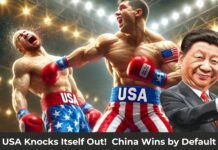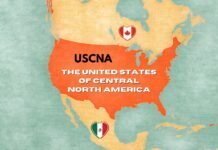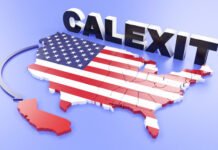![]() American corporations have to beg for capital from the cash-rich Sovereign Wealth Funds in the Persian Gulf. By invading Iraq, President George W. Bush grossly undermined American credibility in the international arena and irrevocably weakened Washington’s diplomatic clout.
American corporations have to beg for capital from the cash-rich Sovereign Wealth Funds in the Persian Gulf. By invading Iraq, President George W. Bush grossly undermined American credibility in the international arena and irrevocably weakened Washington’s diplomatic clout.
Together, these historic shifts have provided an opportunity for the world to move from the tutelage of the sole superpower, America, to a multi-polar global order, one where America’s moral, economic, and military leadership will be profoundly challenged.
- What form will this world resemble?
- What are the perils and promises of this new power order?
In the amazing compelling book After Empire: The Birth of a Multipolar WorldAuthor Dilip Hiro provides a realistic, challenging, and nuanced look at the emerging power politics of the coming century and considers how they are going to turn our world upside-down.
After Empire Author Discusses Merchants of Death on the U.S. banned PressTV
Dilip Hiro is one of the world’s leading experts on Middle Eastern, Central Asian, and Islamic affairs and has written many books. He lives in North London. He has written a compelling, authoritative, highly informative, and thought-provoking book!

The esteemed London-based author, historian, and foreign policy expert Dilip Hiro gives us an important treatise that is both a geopolitical overview of the world and regional history and an analysis of the rise of the multi-polar nations/powers controlling our world, as viewed by the author from outside the US sphere of influence.
Hiro analyzes the world in “its late imperial phase” and draws his conclusions placing the US in its rightful context among other equally-weighted nations and organizations in the eastern and western hemispheres. He also provides a great deal of historical detail that many of us may have missed, even as we lived through it.
Economist
“Dilip Hiro writes from an unabashedly un-American point of view. It is arresting to see a familiar object assume an unfamiliar shape.”
Mr. Hiro notes the USA became the sole superpower on 1 January 1992 after the fall of the Soviet Union, a status which the book reveals began to slip with the Clinton administration’s Russian entanglements, and began to unravel during George W. Bush’s 2 simultaneous war fronts and the US (and worldwide) near-miss financial meltdown and is now slipping further with the current challenges and difficulties of the Obama administration.
Hiro begins with the rise and fall of the bi-polar world, then “America’s Place In The Sun”, Russia, the important politics of oil in Venezuela and Iran, and the People’s Republic of China (PRC) (note the sections: “Hugging the Russian Bear” and the “Dragon and Uncle Sam”), the complexities of India, Pakistan and their region, the European Union, South America, and what he sees as “Future Flashpoints”, among other topics.
Along the way, we get a very good, detailed but non-technical analysis of the US and worldwide financial meltdown, in the midst of our “unbridled capitalism”. The USA, however, is the constant counterweight to all of those national entities, either as an ally, an adversary, or seemingly both. A major theme of Dilip Hiro’s worldwide analysis is the ‘power of oil’ making for unusual economic alignments that may surprise some.
Financial Times
“Typically, a Hiro book is a dispassionate chronicle that refuses to take sides, letting facts speak for themselves… His challenging, even contrarian account of it [a multipolar world] should be required reading not just for the British Foreign Office, but among foreign ministries more generally .”
Still another major impression is how military might is supplanted by the wielding of financial power exemplified by the PRC’s state-guided economic development, Venezuela, Russia, & the EU. And there is the disturbing rise of massive cyber-spying from China which may be a major factor in future wartime or peacetime scenarios.
When he reaches his conclusion about the potential number of future superpowers, two of the nations may surprise the reader. The USA has been the only constant superpower since WW II and the author makes a convincing case for the PRC, Russia, other nations, and ascendant multi-national unions which are either already there or are on the brink of superpower membership in the midst of the 21st Century. A major consideration in all of this is the balancing act within the UN Security Council.
This is a very intellectual, deeply researched book, full of information and cogent analyses that cut quickly but deeply into each topic.












